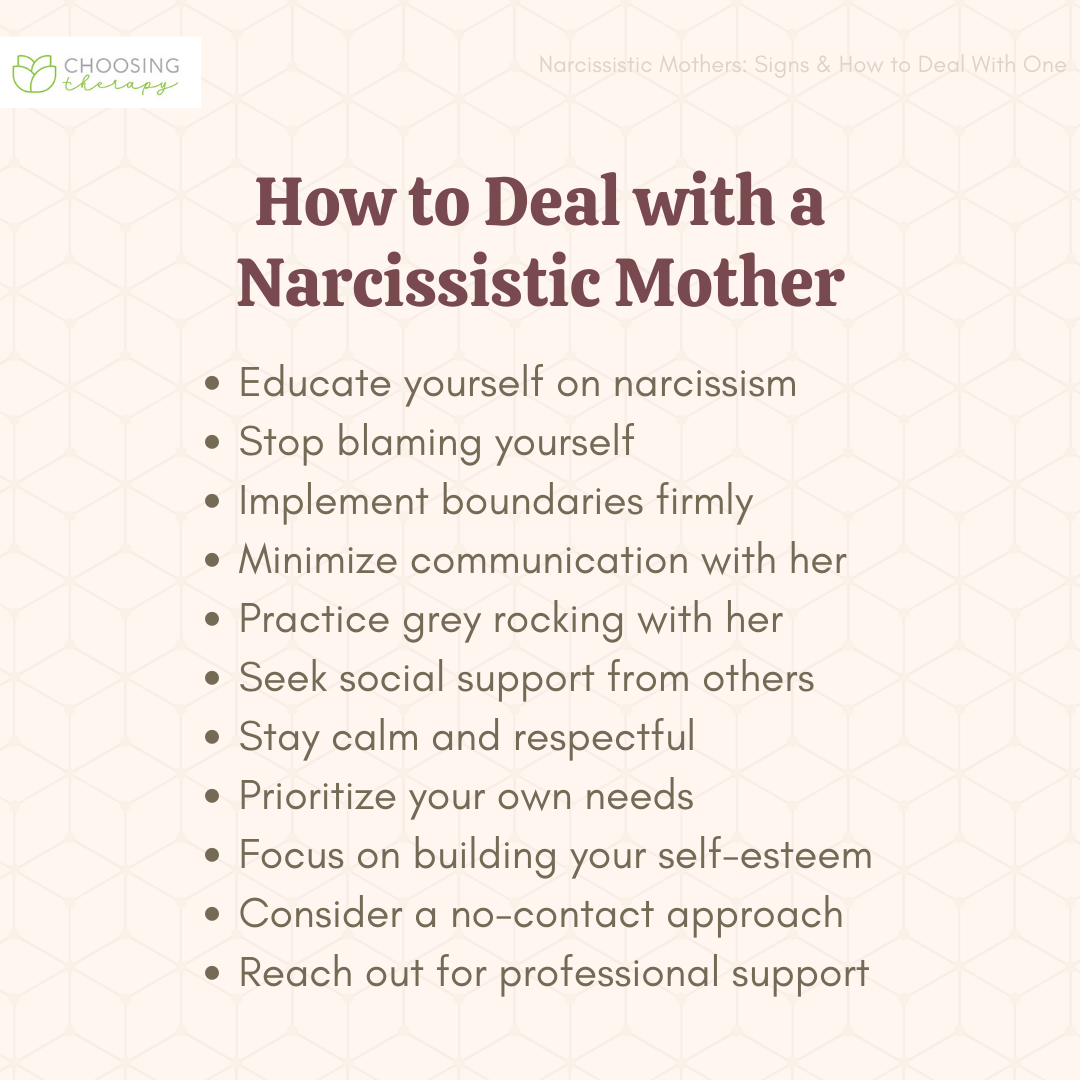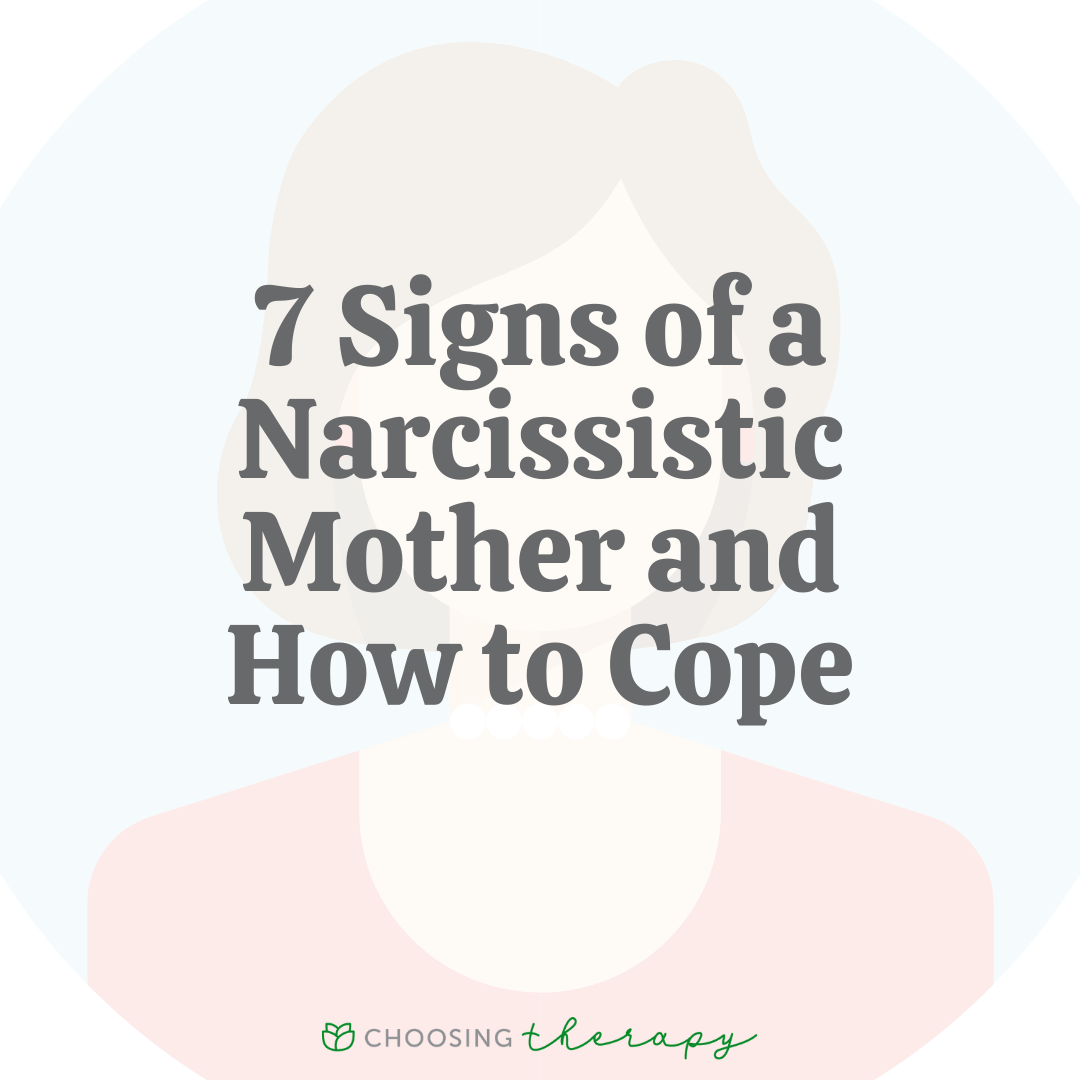How To Shut Down A Narcissistic Mother

Navigating relationships with individuals exhibiting narcissistic traits can be challenging, particularly when that individual is a mother. While there is no single "shut down" technique, experts suggest strategies to manage interactions and protect one's emotional well-being.
This article explores practical approaches to handling interactions with a narcissistic mother, drawing on advice from therapists, psychologists, and resources on personality disorders. It emphasizes setting boundaries, understanding the dynamics at play, and prioritizing self-care. This is not a guide to changing someone's personality, but rather a toolkit for managing the relationship effectively.
Understanding the Dynamic
The term narcissism, often associated with excessive self-admiration, actually describes a range of behaviors rooted in a need for admiration and a lack of empathy. According to the Diagnostic and Statistical Manual of Mental Disorders (DSM-5), Narcissistic Personality Disorder (NPD) is characterized by a pervasive pattern of grandiosity, need for admiration, and lack of empathy.
It's crucial to remember that only a qualified professional can diagnose NPD. Many individuals may exhibit narcissistic traits without meeting the full criteria for the disorder. The strategies outlined here are applicable to managing difficult relationships with individuals displaying such traits.
Setting and Maintaining Boundaries
Establishing clear boundaries is paramount in managing interactions. Boundaries define acceptable behavior and protect personal space, both physically and emotionally.
Start by identifying your limits. What behaviors are unacceptable? What are you willing and unwilling to do or discuss? Be specific and realistic.
Communicate your boundaries clearly and calmly. For example, "I am not willing to discuss my weight" or "Please do not interrupt me when I am speaking." Consistency is key; enforce your boundaries every time they are crossed.
Managing Communication
Avoid engaging in arguments or trying to prove your point. Narcissistic individuals often thrive on conflict and may distort information to suit their narrative.
Use "gray rocking," a technique where you become emotionally unresponsive. Provide short, neutral answers to avoid fueling their need for attention or drama. This can discourage them from engaging with you.
Consider limiting contact. This may involve reducing the frequency of visits, phone calls, or other forms of communication. The level of contact is a personal decision based on individual circumstances and needs.
Focusing on Self-Care
Dealing with a narcissistic individual can be emotionally draining. Prioritize self-care to protect your mental and emotional health.
Engage in activities that bring you joy and relaxation. This could include spending time in nature, exercising, pursuing hobbies, or connecting with supportive friends and family. Seeking therapy can also provide valuable support and coping strategies.
Remember that you are not responsible for their feelings or behavior. Detaching emotionally can help you avoid getting caught up in their drama and manipulation.
Seeking Professional Support
Navigating a relationship with a narcissistic mother can be incredibly challenging, and professional support is often beneficial. A therapist can help you develop coping mechanisms, process emotions, and establish healthy boundaries.
Consider exploring resources on personality disorders and dysfunctional family dynamics. Organizations like the National Education Alliance for Borderline Personality Disorder (NEA.BPD) offer information and support for individuals and families affected by personality disorders.
A Long-Term Strategy
Managing a relationship with a narcissistic mother is an ongoing process, not a one-time fix. Be patient with yourself, and remember that it's okay to prioritize your own well-being.
By setting boundaries, managing communication, focusing on self-care, and seeking professional support when needed, it is possible to navigate these complex relationships and protect your emotional health. The goal is not to change the other person, but to change how you respond to their behavior and prioritize your own needs.


















